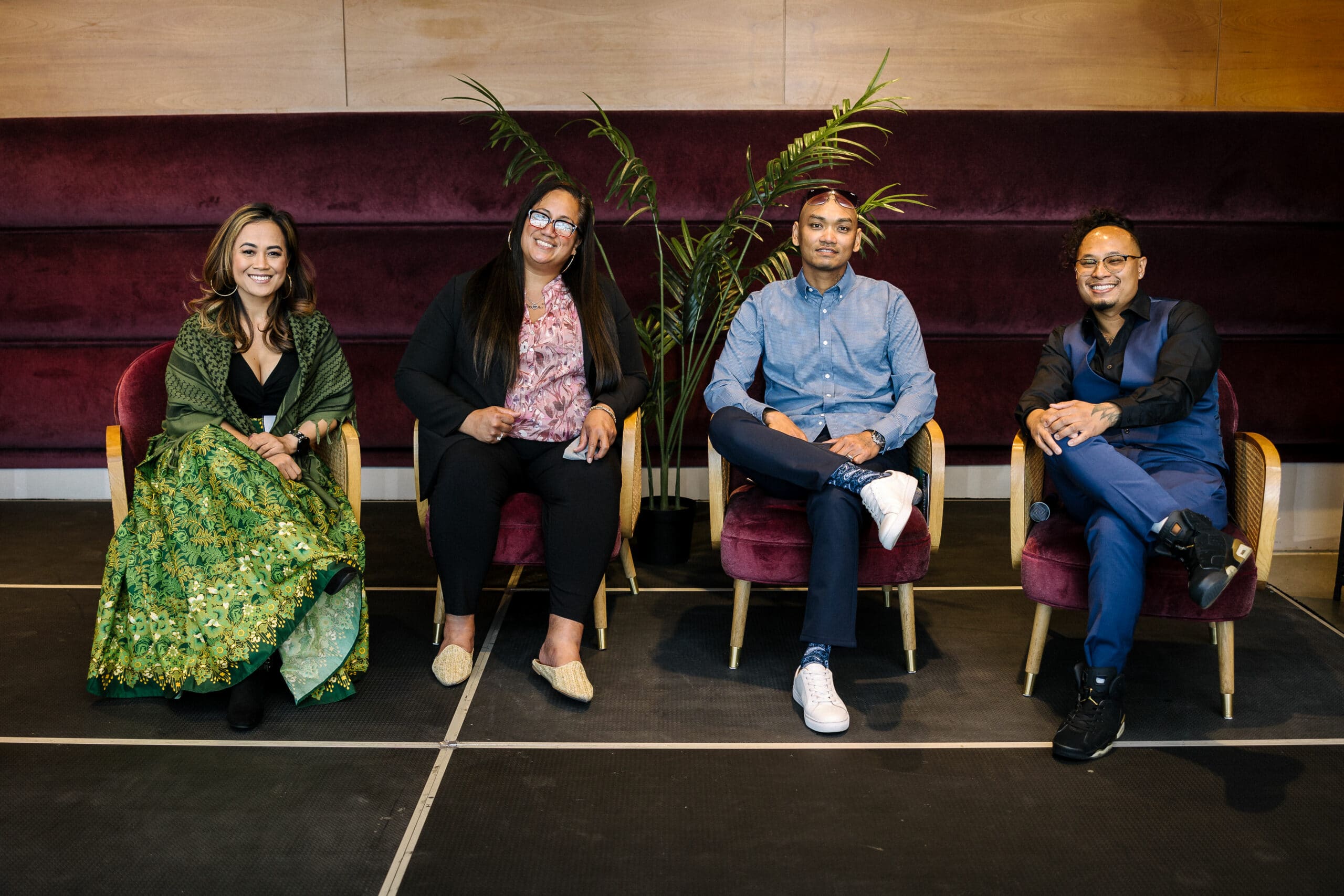Last month, New Breath Foundation held its annual celebration and awards ceremony, Collective Liberation 2024, where they featured a panel including three NBF Community Advisory Committee members: Lon Chhay of Asian Solidarity Collective; Leesa Nomura of California Coalition for Women Prisoners (CCWP) and F.O.U. Movement; and Ny Nourn of Asian Prisoner Support Committee and Survived & Punished. Moderated by Thanh Tran of Ella Baker Center for Human Rights, the panelists shared their insights on the event’s theme, Collective Liberation. Featured below is an abridged version of the panel conversation.
Leesa: Hi, my name is Leesa Nomura. I am of Samoan and Japanese descent. I serve as the membership organizer for CCWP. I also do much volunteer work for my Samoan community and my API community through my work with API Rise in Los Angeles. I’m formerly incarcerated, and I’ve been home for 4 years.
Ny: My name is Ny Nourn; she/her pronouns. I am the Co-Director of the Asian Prisoner Support Committee, which was co-founded by Eddy Zheng and also our great Yuri Kochiyama. And besides working for APSC, I’m also an organizer with Survived & Punished. I’ve been home for about 7 years now. Oakland is my home, and it’s great to see some familiar faces, partners, networks, just really being community and sharing space with you all.
Lon: Hello, everyone. My name is Lon Chhay. I’m with Asian Solidarity Collective. I’m the Director of Alternatives to Incarceration and Re-entry Initiatives down there, where I do work surrounding mass incarceration and for folks who are returning home.
Thanh: I think it’s important that we acknowledge that in a time right now when there’s so much political unrest, so many things going on around the world, specifically in Palestine, with all this heaviness that is going on in the world, it’s important that we collectively organize and come together and celebrate the moments and opportunities that we have to be able to create impact in this world.
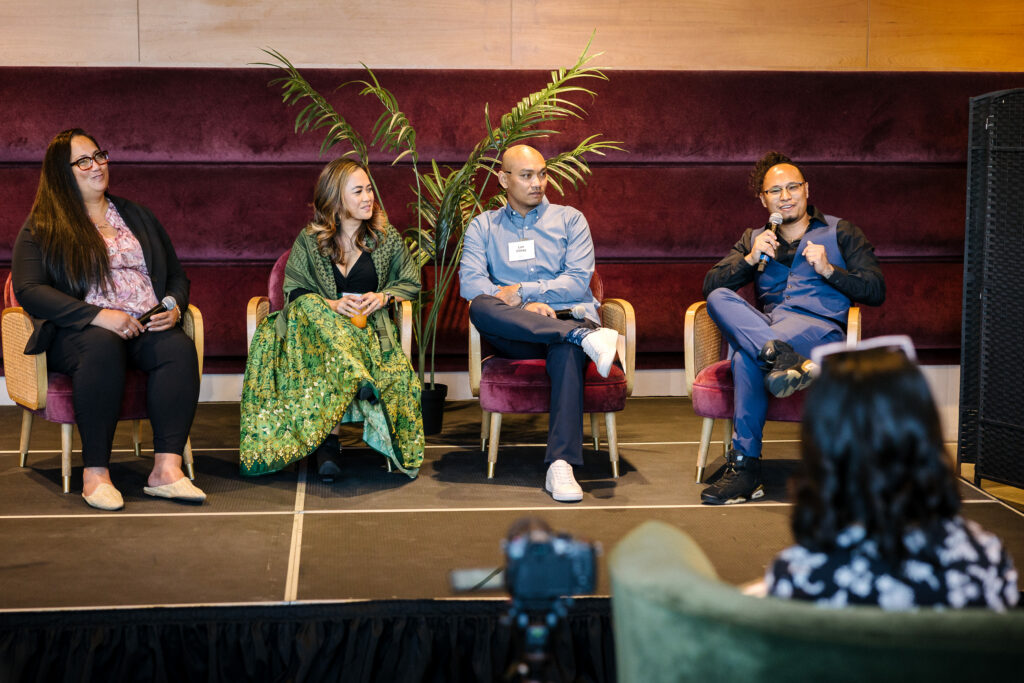
I want to take a spin on a quote that we hear a lot, especially in this movement. Shout out to my brother James King, with the Ella Baker Center, who has been so instrumental in my politicization and bringing me to organizing. He always said that the people closest to the problems are the closest to the solutions but always the furthest from the levers of power to create change. And that always stuck with me. But what is so powerful about our panel here is that they’re closing that gap between the solutions and the ability to create change. I want to ask our panel to talk about how your lived experience has inspired and influenced the work that you do today.
Lon: So some of the things that have influenced my leadership in the community is that I know that cross-racial solidarity work is important in our communities because I understand that no one’s going to come into our communities and help us better than our neighbors, the person a block away from us. So it’s up to us to be able to take care of us in our communities because if we don’t take care of each other and create that cross-racial solidarity amongst each other, then we have other folks from outside of our communities coming in and telling us what we need in our communities.
Ny: Thank you for that question. It’s a Glenn E. Martin quote, too, that I’ve heard – those that are closest to the problem are closest to the solution. For me, my lived experience definitely informs my leadership. It’s been shared with me that my leadership is considered humble. I walk alongside my people. I’m only in this leadership position because people want me to be. I don’t like to put myself in this leadership position because I feel we’re all leaders. I feel like working together is really what collective liberation is.
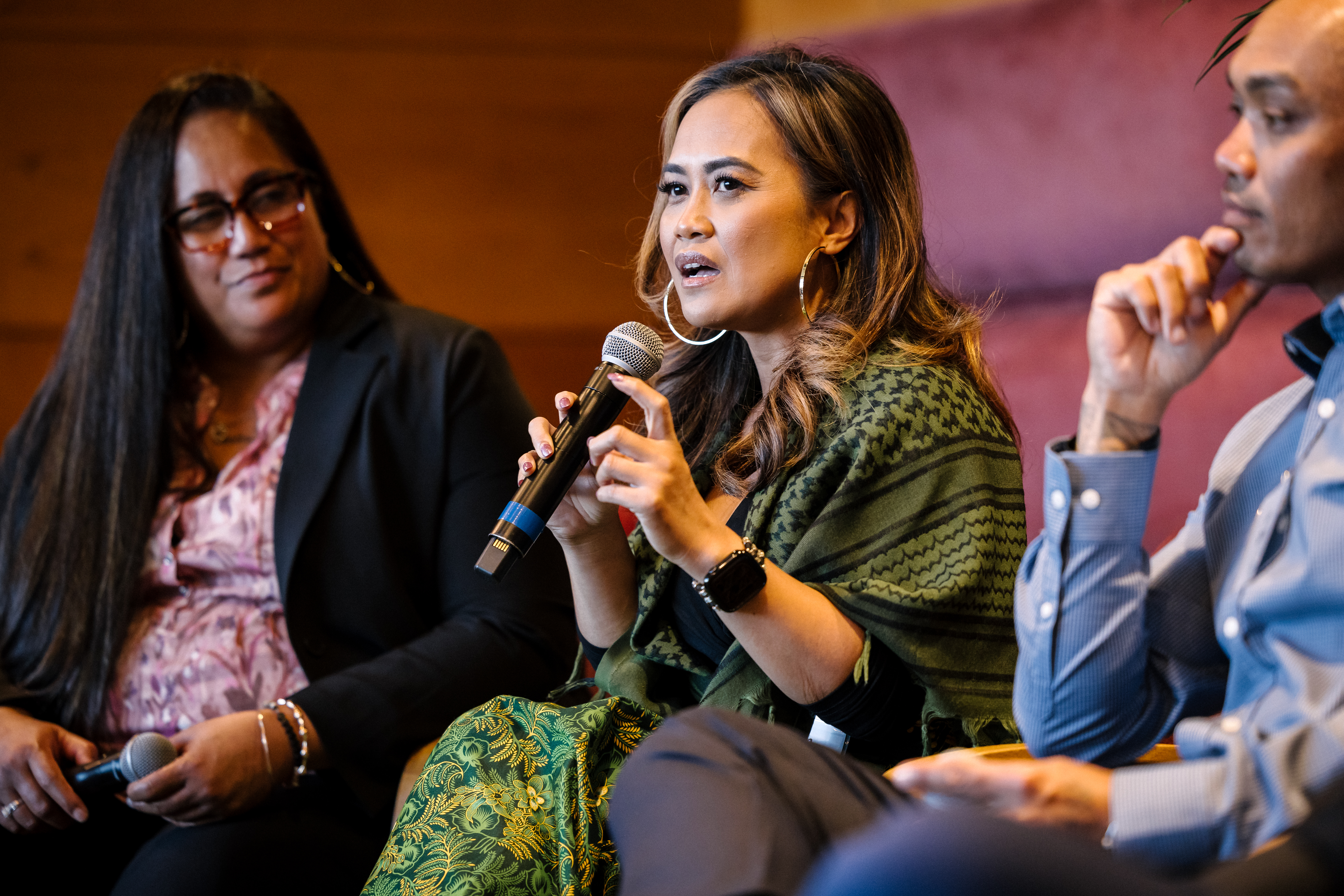
Based on my lived experience, I’ve walked through fires. I’ve survived many storms. But my resilience was modeled to me by people I did time with. When I stepped inside prison, people were already doing 15, 20 years. And it blew me away that they had so much hope, inspiration, and encouragement to say, “You’re living a life without parole; that doesn’t mean you’re going to die here. We want you to fight, give hope to others. There’s a chance for you. Somehow, this criminal justice made a crack where you should not have been here.” And I said, “You shouldn’t be here, too.” And learning from them, growing as I continue to heal – I mean, as humans, I feel like a student. As students of life, we never stop learning. Therefore, my leadership is informed by everyone’s experiences that my life touches. In the words of Yuri Kochiyama, we are part of each other. We’re one another. We’re all connected. Our liberation is tied to each other. So, my Yuri, my shero, I had to bring her up in terms of what collective liberation is and how it supports my leadership.
Leesa: Thank you so much, Ny. It’s such a great opportunity to sit on this panel next to Ny, being that I served so many years across the hall from her. My lived experience inside women’s prisons was nothing short of a training ground for my advocacy work, for my revolutionary work today. It puts me at the front lines of every rally cry that I scream at the top of my lungs in liberation for those that are disenfranchised, for those that are being subjected to the most horrific slave labor, sexual violence, that which I know all too well firsthand. Being closest to the problem is something that I know all too well, and I play it way too close for me not to be a part of this work, not to live it every day. It’s something that I have to force myself to turn off in order to have a balanced life. But it’s something that I love. It’s something that I get to do today. Passion and hope and trauma and crisis and chaos guides the work that I do today. Collectively, we walk forward together. And as we move forward, the vision comes into focus collectively together, because we all dream that dream in tandem. We dream it together. And that’s why I do what I do. And I just am so grateful to be able to dream this dream together with my sister today outside of prison, pulling everybody outside those walls one day.
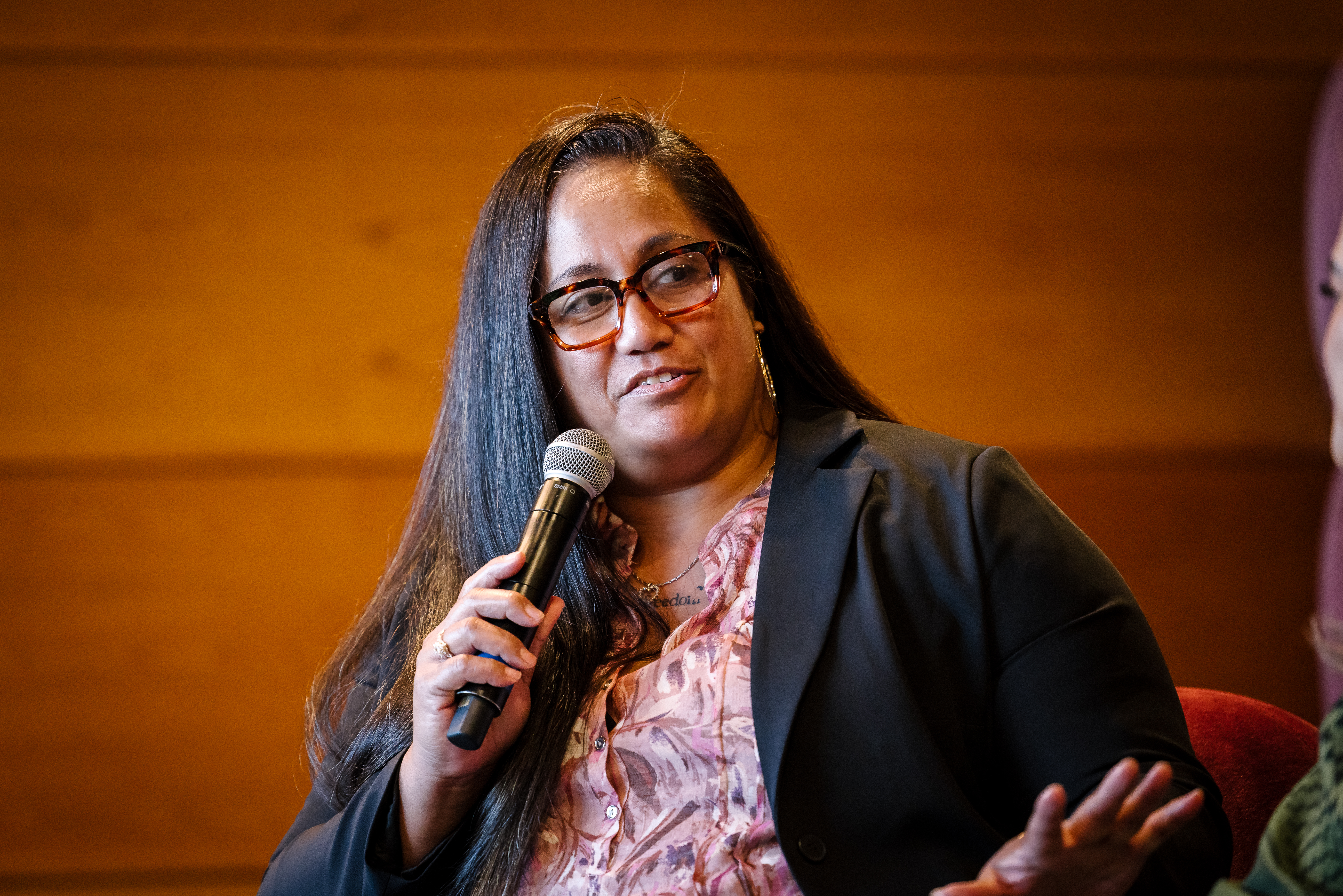
Thanh: I think I want to name that there’s been so many times when I’ve heard the word “lived experience,” and people have reduced “lived experience” to just the suffering that we’ve experienced. And it’s more than the suffering. It’s the growing, it’s the empowerment, it’s the politicization. It’s developing a politic. It’s all those things that we hard-earned through the experience and the pain we’ve experienced. So, I want to lift up that there is power in lived experience. And what a great day it is today that we have a panel at a foundation full of formerly incarcerated people. This wouldn’t have happened ten years ago, I’m just saying.
So, talking about lived experience and leadership, I want to segue into the next thing, which is about New Breath Foundation. This is who we’re here for today. But specifically about how New Breath has been pouring into our community and leaders for so long. Personally, New Breath and Eddy Zheng have been pouring into me. When I was incarcerated in San Quentin, the chairman of ROOTS of a program on the inside, before I ever got out, before I even had a release date, was already investing in me and knowing that this was a leader that would one day come out and participate in this movement and contribute to this movement, because it’s more than just one person, it’s a collective. And that’s what we’re here for today: collective liberation. And I want to segue down to our other question. How has New Breath invested in you all? And how has New Breath continued supporting you all in your leadership and journeys today?
Leesa: All right, I’ll go first. Inside the Central California Women’s Facility (CCWF), I led an API group every Sunday. All of my USOs* would come together and also all of our APIs would come, and we would group together. And I believe this was training for me in the space of the work I do today. Never before did I ever imagine as a young Samoan girl growing up in Carson, California – a very strong, powerful Samoan community – was I ever going to grow up and sit on platforms where I could speak on issues of global impact, national impact that would impact so many lives. Or take issues to Sacramento and sit before people and have to ask them to do things that were such no-brainers like, “Free people that deserve to be freed” or “Help people that need to be helped.” And here I am, doing exactly that. New Breath is allowing me to sit here on behalf of my Pacific Islander people of Tongan and Samoan descent and open doors of opportunities like never before because, in my culture, we didn’t know how to ask for help. We didn’t know how to stay because our culture wouldn’t allow us to do that. But New Breath is allowing me to be an advocate and an ambassador for my culture and my people, and I’m so grateful for that today.
Thanh: Beautiful. Who would like to go next?
Ny: When I was inside as an organizer working around the California Coalition for Women Prisoners (CCWP) around the Living Chance story project when I was serving life without parole, that informed my political lens in which people in women’s prisons really are underserved, really criminalized, especially domestic violence survivors, survivors of sexual assault, and just excessive amount of sentencing. So by working with them, being transferred to ICE detention after almost 16 years, CCWP along with Survived and Punished, that’s how I got to know Eddy. At that time, Eddy was with the Asian Prisoner Support Committee – the community coming together and building, evolving, and supporting my leadership, preparing me to come out here.
The question is, what has New Breath not done for me? From the moment I stepped out, Eddy welcomed me within 72 hours at the Asian Law Caucus. Getting to know about Claudia’s work as an organizer and getting to know the New Breath Foundation family – just so much outpouring, checking in, wanting to make sure that my leadership development, anything that I need as a co-director, was supported. Being able to work with Eddy and the foundation has been a gift for me and the Asian Prisoner Support Committee, as well as for our community.
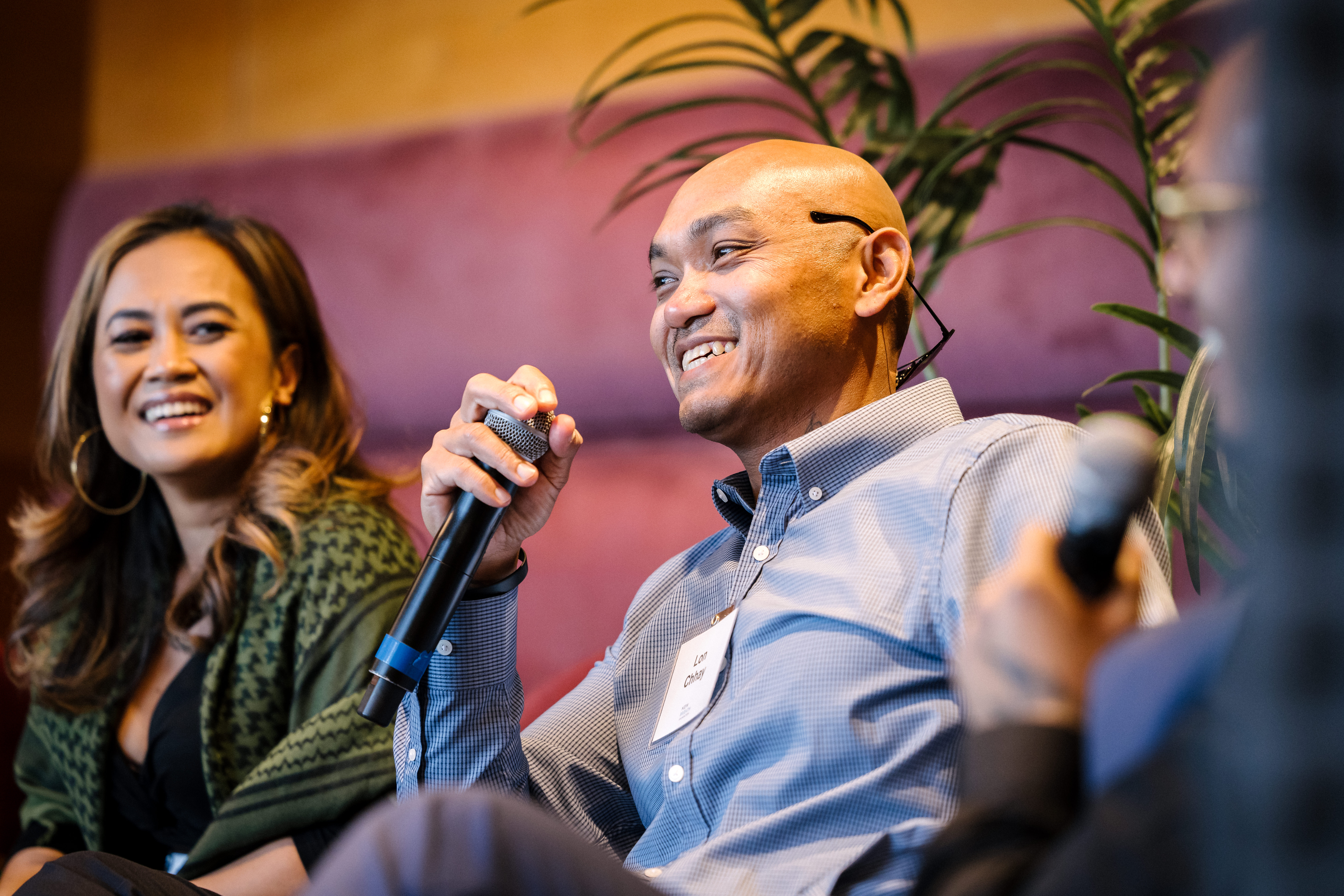
Lon: When I was sitting in prison, I used to watch PBS a lot because I like to learn things. And I remember seeing Eddy on one of those documentaries. So I was like, I need to get a hold of this man when I come home. And so when I came home, that’s what I did. I tried everything I could to get a hold of him. And finally I was able to get a hold of Eddy. We met virtually through Zoom. And, you know, he gave me some pointers on how to approach the work that I presented to him for San Diego. And some of the things that he told me made a lot of sense, and I went with his advice. And now with the help of New Breath, I’m able to put together reentry resources for our folks for the API communities down there, because we’re seen as like, our folks don’t go to prison, we don’t get in trouble, right? So we were able to have that down there for our folks versus them coming home and having to go to other places, organizations where they usually get put on a back burner. But now we’re able to streamline that process for our people.
Thanh: I wish we had way more time. But I’ll close this off with a few thoughts and a few words. I look around this room, a year or two ago, most of y’all were strangers to me, right? Today, I see a bunch of familiar faces. I see people who continue to pour and invest in me personally. And I know they invested in the people on this panel. Think about all the organizations and movements that have been empowered because of New Breath Foundation, right?
So, today’s theme of this event was collective liberation. I loved hearing that this was the theme because we cannot do this alone. We are building change and building leaders, and the only way we can do that is together.
*USO is a Samoan term for “brother” between males or “sister” between females. USO isn’t used across genders.
—
You can find a full list of our Community Advisory Committee (CAC) members and their bios on our team’s page.
